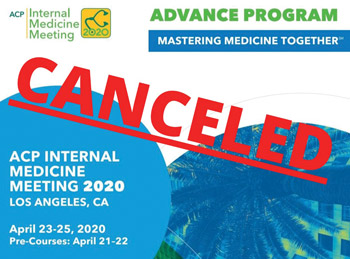New reimbursement codes you can use now
Physicians can use new billing codes to garner reimbursement for online services based on time, as well as chronic care management, principal care management, and transitional care management.
Independent practices are always looking for new sources of reimbursement. Beginning in 2020, there are new coding opportunities that physicians can use. While 2021 promises even bigger changes, be sure to familiarize yourself with the current ones.
The evaluation and management (E/M) office/outpatient visit codes will remain the same for now, but electronic health record (EHR) codes allow practices to charge for online services based on time. The following new time-based codes replace 99444 (online E/M service):
- 99421. Online digital E/M service, for an established patient, for up to seven days, cumulative time during the seven days; 5-10 minutes;
- 99422. Online digital E/M service, for an established patient, for up to seven days, cumulative time during the seven days; 11-20 minutes; and
- 99423. Online digital E/M service, for an established patient, for up to seven days, cumulative time during the seven days; 21 or more minutes.
If an E/M visit including telemedicine happens within seven days of the initiation of the online digital E/M service, you can add it on to the face-to-face visit only. However, if the telehealth visit is due to another problem within these seven days, then a separate report is necessary.
Chronic care management (CCM) services
This year, CMS created a new Healthcare Common Procedure Coding System (HCPCS) code, G2058, which is an add-on to CPT code 99490, covering an additional 20-minute period of CCM beyond the initial 20 minutes with a maximum billing of two times per month per person. Furthermore, CMS changed its definition of what a care plan includes, as complex codes 99487 and 99489 saw significant changes this year as well. Starting in 2020, there is no longer a requirement for substantial care plan revision. This will allow for more billable time and time spent on care coordination; the description reads, “establishment or substantial revision of a comprehensive care plan.”
Principal care management (PCM) services
New principal care management (PCM) codes allow practices to bill for care management for services provided to patients with one serious chronic condition by a specialist or primary care physician. PCM limits billing by the same practitioner for the same patient simultaneously with other care management services. Additionally, the same practitioner cannot bill for the same patient during a surgical global period. Clinicians should document ongoing communication and care coordination between themselves and patients.
The new PCM codes are as follows:
- G2064. CCM for a single high-risk disease, i.e., PCM, at least 30 minutes of physician or other qualified health care professional time per calendar month with the following elements: one complex chronic condition lasting at least three months, which is the focus of the care plan; the condition is of sufficient severity to place the patient at risk of hospitalization or to have been the cause of a recent hospitalization; the condition required development or revision of a disease-specific care plan; the condition requires frequent adjustments in the medication regimen; and/or the management of the condition is unusually complex due to comorbidities.
- G2065. CCM for a single high-risk disease, i.e., PCM, at least 30 minutes of clinical staff time directed by a physician or other qualified health care professional per calendar month, with the following elements: one complex chronic condition lasting at least three months, which is the focus of the care plan; the condition is of sufficient severity to place the patient at risk of hospitalization or to have been the cause of a recent hospitalization; the condition requires development or revision of a disease-specific care plan; the condition requires frequent adjustments in the medication regimen; and/or the management of the condition is unusually complex due to comorbidities.
Transitional care management services
This year, transitional care management (TCM) codes allow for reimbursement of the non-face-to-face care provided when patients transition from an acute care setting back into the community.
New TCM codes that took effect starting this year are as follows:
- 99495. TCM services with the following required elements: communication (direct contact, telephone, electronic) with the patient and/or caregiver within two business days of discharge; medical decision making of at least moderate complexity during the service period; and face-to-face visit within 14 calendar days of discharge.
- 99496. TCM services with the following required elements: communication (direct contact, telephone, electronic) with the patient and/or caregiver within two business days of discharge; medical decision making of high complexity during the service period; and face-to-face visit within seven calendar days of discharge.
Allowed reported services alongside TCM services include:
- Prolonged services without direct patient contact (99358-99359);
- Home and outpatient international normalized ratio (INR) monitoring (93792-93793);
- End-stage renal disease (ESRD) services for patients ages 20 years and older (90960-90962, 90966, or 90970);
- Interpretation of physiological data (99091); and
- Care plan oversight (G0181-G0182).
With the addition of these new codes, practices have an opportunity to charge for services that were previously under- or unreimbursed. For more information on the new 2020 revenue-generating E/M codes, including CCM, PCM, and TSM codes, as well as related resources, please visit ACP's Coding page.




